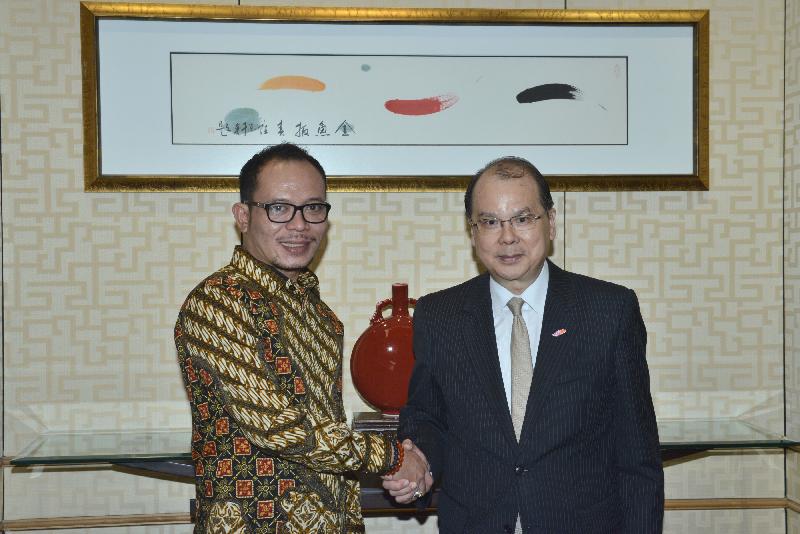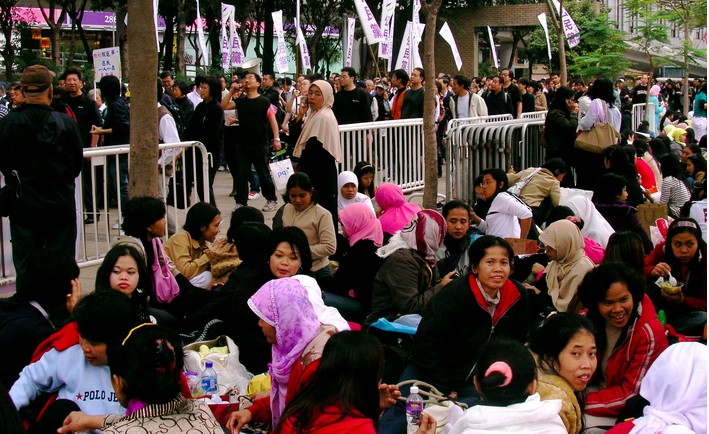Secretary for Labour and Welfare Matthew Cheung Kin-chung expressed his hope for measures to be taken to prevent Indonesian domestic helpers incurring heavy debts before coming to Hong Kong during a meeting with a delegation led by Indonesia’s Minister of Manpower Hanif Dhakiri on Monday.
The two discussed issues such as placement, training, employment rights and benefits. Both sides agreed that the two governments would continue to work together to prevent recruitment agencies from charging domestic workers illegal fees.

Cheung said he hoped that the Indonesian Government would undertake measures to reduce the fees charged by Indonesian-based agencies or offer low-interest loans so that workers would not incur heavy debts before coming to Hong Kong.
Eman Villanueva of the Asian Migrants’ Coordinating Body told HKFP: “We at the AMCB have serious doubts if this meeting would really translate to any concrete measure that will genuinely… improve the working and living condition of Indonesian migrant workers in Hong Kong,” He said. Villanueva added that the Hong Kong government has refused to “institute reforms on many fronts.”
Sunday protest
Meanwhile, the Filipino Migrant Workers’ Union is organising a rally this Sunday to protest against the Philippine Bureau of Customs for carrying out random inspections of door-to-door boxes that foreign domestic workers send back home.
Earlier this month, Cheung also met with the Philippine delegation led by the Rosalinda Dimapilis Baldoz, the Secretary of Labour and Employment of the Philippines.

Currently, there are around 178,000 Filipino domestic workers and 150,000 Indonesian domestic workers, which make up 53 percent and 45 percent of the total foreign domestic worker population of 337,000 respectively. Domestic workers enjoy protection under the Minimum Allowable Wage and Employment Ordinance, and receive free food and accommodation.
However, the live-in law and two-week rule—which means that workers must live with their employer and that they are only given two weeks to find a new contract if they quit or are fired—discourage domestic workers from escaping abusive situations.
Last year, Indonesian domestic worker Erwiana Sulistyaningsih was abused by her employer, causing public outcry.
